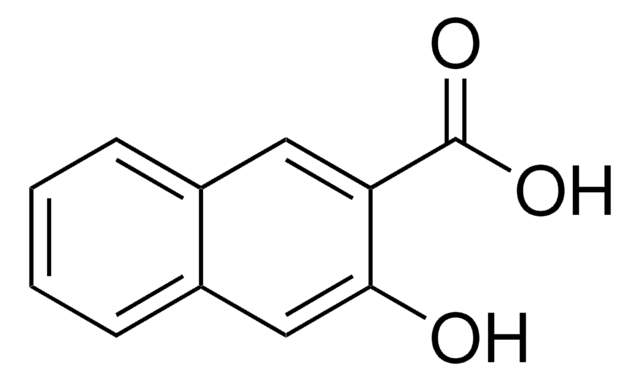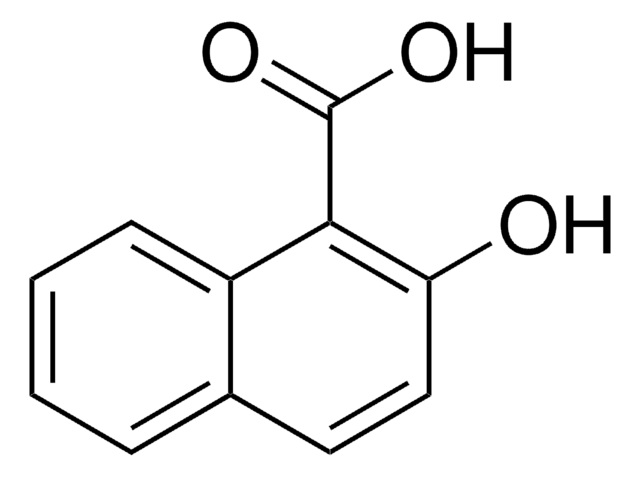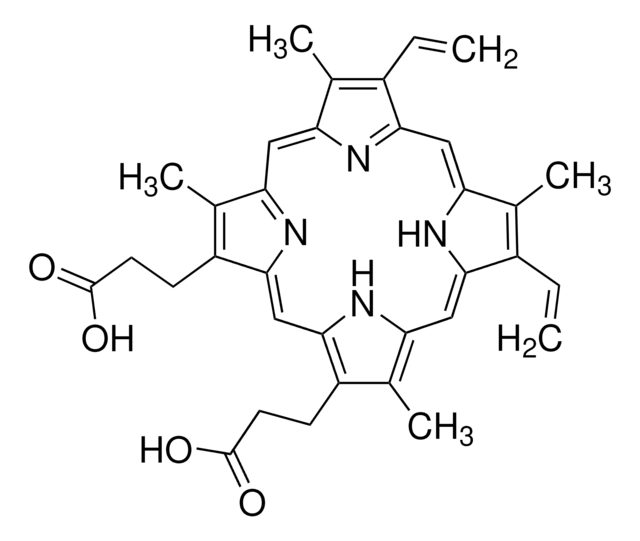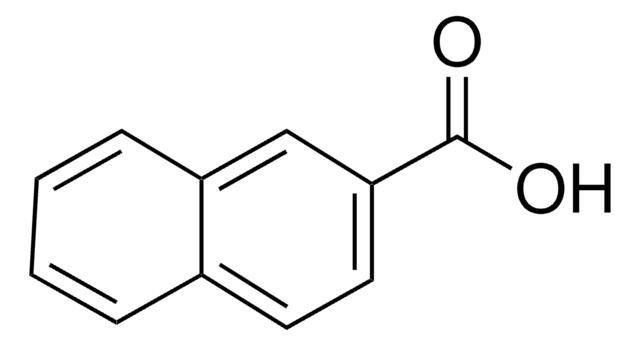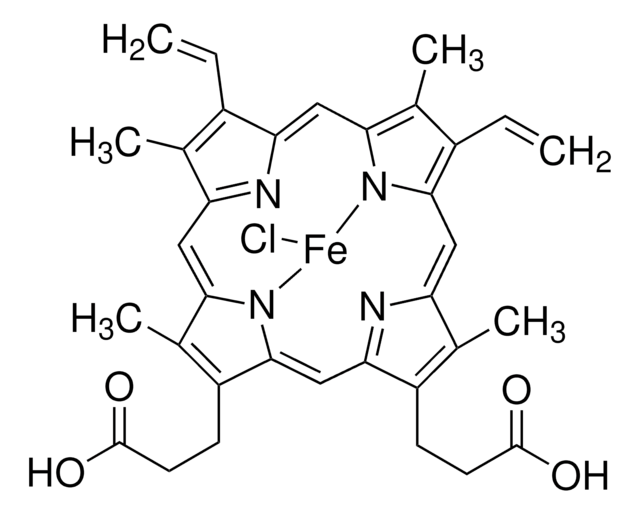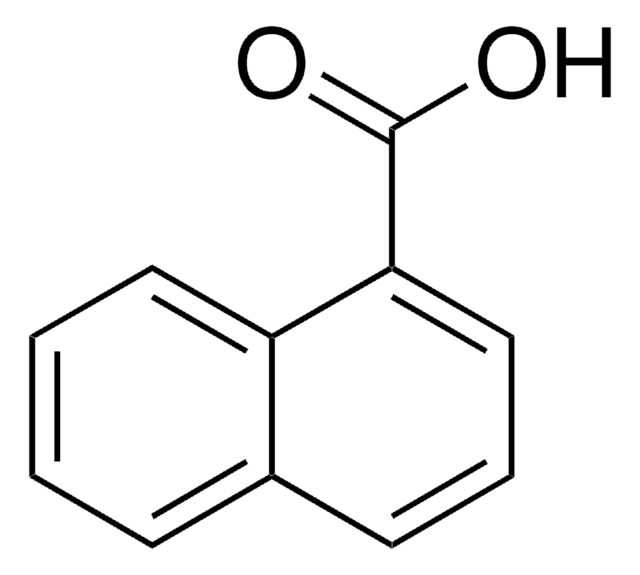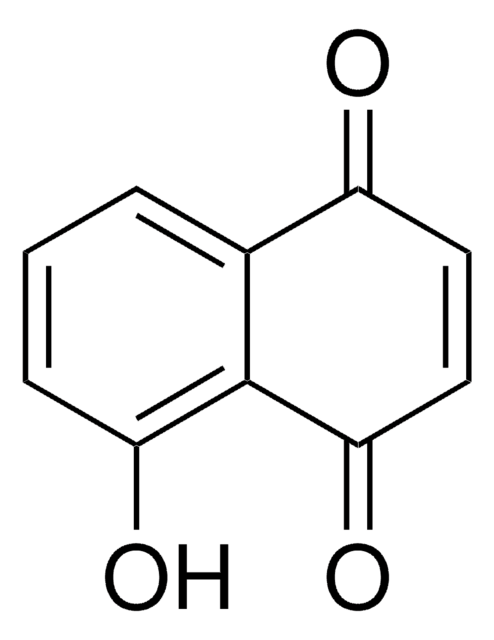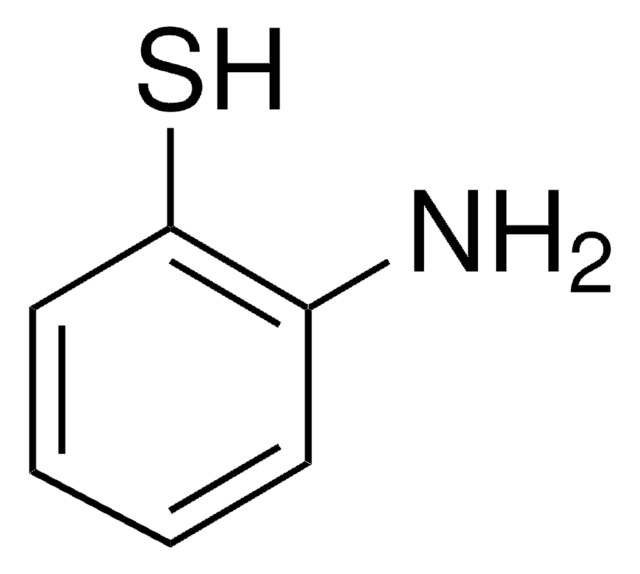281255
1,4-Dihydroxy-2-naphthoic acid
97%
Synonym(s):
1,4-Dihydroxy-2-carboxy naphthoic acid, 1,4-Dihydroxy-2-naphthalenecarboxylic acid, 1,4-Dihydroxy-2-naphthoate
Sign Into View Organizational & Contract Pricing
All Photos(2)
About This Item
Linear Formula:
(HO)2C10H5CO2H
CAS Number:
Molecular Weight:
204.18
EC Number:
MDL number:
UNSPSC Code:
12352100
PubChem Substance ID:
NACRES:
NA.22
Recommended Products
Quality Level
Assay
97%
mp
220 °C (dec.) (lit.)
functional group
carboxylic acid
SMILES string
OC(=O)c1cc(O)c2ccccc2c1O
InChI
1S/C11H8O4/c12-9-5-8(11(14)15)10(13)7-4-2-1-3-6(7)9/h1-5,12-13H,(H,14,15)
InChI key
VOJUXHHACRXLTD-UHFFFAOYSA-N
Related Categories
General description
1,4-Dihydroxy-2-naphthoic acid from Propionibacterium freudenreichii is known to promote the proliferation of Bifidobacterium. It has potential therapeutic application for psoriasis treatment.
Signal Word
Warning
Hazard Statements
Precautionary Statements
Hazard Classifications
Eye Irrit. 2 - Skin Irrit. 2 - STOT SE 3
Target Organs
Respiratory system
Storage Class Code
11 - Combustible Solids
WGK
WGK 3
Flash Point(F)
Not applicable
Flash Point(C)
Not applicable
Personal Protective Equipment
dust mask type N95 (US), Eyeshields, Gloves
Choose from one of the most recent versions:
Already Own This Product?
Find documentation for the products that you have recently purchased in the Document Library.
Customers Also Viewed
Pallavi P Murugkar et al.
Journal of oral microbiology, 12(1), 1814666-1814666 (2020-11-20)
The vast majority of bacteria on earth have not yet been cultivated. There are many bacterial phyla with no cultivated examples including most members of the Candidate Phylum Radiation with the exception of human oral isolates from the phylum Saccharibacteria.
Site of prenylation reaction in synthesis of phylloquinone (vitamin K1) by spinach chloroplasts.
G Schultz et al.
European journal of biochemistry, 117(2), 329-332 (1981-07-01)
Biosynthesis of vitamin K (menaquinone) in bacteria.
R Bentley et al.
Microbiological reviews, 46(3), 241-280 (1982-09-01)
Kumiko Nagata et al.
Helicobacter, 15(5), 422-429 (2010-11-19)
Triple therapy with amoxicillin, clarithromycin, and a proton-pump inhibitor is a common therapeutic strategy for the eradication of Helicobacter pylori (H. pylori). However, frequent appearance of clarithromycin-resistant strains is a therapeutic challenge. While various quinones are known to specifically inhibit
Yoshikiyo Okada et al.
Journal of leukocyte biology, 94(3), 473-480 (2013-06-27)
The anti-inflammatory mechanism of prebiotics has recently been shown to have an impact on the host immune system. DHNA from Propionibacterium freudenreichii is known to promote the proliferation of Bifidobacterium and can ameliorate colitis, although its mode of action remains
Our team of scientists has experience in all areas of research including Life Science, Material Science, Chemical Synthesis, Chromatography, Analytical and many others.
Contact Technical Service

